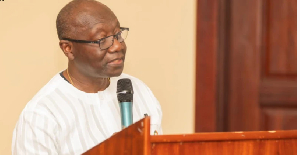Apparently, language is an expression of who we are as people, nations, or communities. Language, therefore, conveys meanings and references beyond itself.
In effect, the meanings of a particular language denote the culture of a particular social group. Succinctly, to interact with a language means to do so with the culture, which is its reference point.
Therefore, we cannot understand a culture without having direct access to its language due to its interrelationships.
In practice, therefore, a particular language points to the culture of a particular social group.
Thus, some schools of thought maintain that learning a language is not only learning the alphabet, the meaning, the grammar rules, and the arrangement of words; it is also learning the behaviour of society and its culture and customs.
The historian Herodotus argued more than 2,000 years ago that culture and customs are sacrosanct and there are no universal ethics when it comes to culture and customs.
To buttress his point, Herodotus aptly told the story about the Persian king Darius. The king, according to Herodotus, summoned several Greeks and asked them how much money they would take in exchange for consuming the dead bodies of their fathers.
Extremely outraged, the Greeks declined to perform such a gruesome act at any price, adding that the cremation of the dead was a sacred obligation.
According to Herodotus, King Darius then called upon some Indians, who allegedly, by custom, ate their deceased parents, and asked them if they would consider burning the dead bodies of their fathers.
The Indians felt insulted. And, to ventilate their arousing disgust, the Indians retorted that such an act would be a heinous crime.
The moral lesson concluded by Herodotus was simply that different groups of people regard their own culture and customs as sacrosanct and superior (Herodotus 1974; Ishay 2004).
Interestingly, we Ghanaians tend to attribute transcendent intelligence to people who have a grasp of the English language.
I am afraid such a notion is spurious. Having a command of the English language cannot be a cynosure of transcendent powers of the mind.
Of course, having a command of the English language is an advantage for individuals, given its ecumenical recognition.
That being said, I take an exception to a school of thought that holds the view that having a mastery of the English language is a sign of nuanced intelligence.
Trust me, that is fallacious. I have had the opportunity to give remedial instructions to a group of English indigenes who had learning disabilities (mentally incapacitated) and yet had unbelievable linguistic precision.
Paradoxically, however, in Ghana, individuals are held in high esteem for having a superlative grasp of the Englishman's language. How bizarre, how romantic, and how ironic to attribute superior powers of the mind to individuals with a mastery of the Englishman's language?
Unfortunately, with such an innate predilection, we tend to believe that a trained communicator, for instance, can solve all our problems by virtue of his/her communication skills.
Let’s face it, having the precision of the English language is neither a leadership quality nor a sign of superior intelligence.
In truth, it does not necessarily make one a great leader and thinker, but we, Ghanaians, are routinely lured by rhetoric devoid of substance.
We definitely need attitudinal and behavioural change. Of course, individuals have the absolute right to speak the language(s) of their choice. However, I find it extremely abhorrent when bona fide Africans slavishly decide to scoff at the natives who speak their mother’s tongue superlatively.
With all due respect and no offence intended on this occasion, although someone like Madam Akua Donkor of the Ghana Freedom Party does not have a classroom education, she harbours no vestiges of slavery, as evidenced in her previous pronouncements.
I must confess, I could not believe my ears when I once heard Madam Akua Donkor on the radio disclosing her inborn proclivity for ‘Pan Africanism’.
Unlike the unliberated intellectuals who, more often than not, take solace in the foreign culture, Madam Akua Donkor is rather antipathetic to the Western way of life, judging from her solemn narratives.
According to Madam Akua Donkor, she was christened ‘Victoria Donkor by her biological parents, but after growing up and developing superior powers of the mind, she did not find the wisdom or the need to keep ‘Whiteman’s’ name, hence changing her birth name to Akua Donkor.
Madam Akua Donkor boldly and passionately opined: “Tell me why I should take a
‘Whiteman’s’ name?” “Don’t I have my own culture?” “Would a ‘Whiteman’ ever name his child after me (Akua Donkor)?”
I was indeed dumbfounded to hear someone who had had no classroom education and yet was so liberated in her mind. Indeed, Madam Akua Donkor holds no slavish mentality.
Regrettably, juxtaposing Madam Akua Donkor’s emancipated mind or her refined disposition with a self-acclaimed intellectual’s thought process brings nothing but melancholy, so to speak.
Yes, we have self-acclaimed intellectuals, many of whom find it inappropriate to be called by their aboriginal names but would rather take comfort in adopted ‘Western’ names. How bizarre?
It reminds me of a friend of mine who once questioned me about my reasons for refusing to give ‘English’ names to my boys.
According to my friend, the ‘English’ people will find it difficult to pronounce the names of my children, and therefore it was needless for me to give British-born children the native Ghanaian names.
To be quite honest, I was deeply baffled upon listening to my friend’s seemingly weird thought process.
However, I contained my emotional intelligence and showed deference to my classroom-educated friend, who has yet to liberate his mind to reach Madam Akua Donkor’s level.
All the same, my innocent question to my friend was: “Did our colonial masters name their children after our great forefathers?
I proceeded: “Have you ever heard or seen any Englishman who has named his child after our rich African names such as ‘Badu, Sarfo, Sakyi, Danso, Owusu, Mensah, Tetteh, Nkrumah, Busia, Danquah, Acheampong, Afrifa, Amu, Ayikwei, Quartey, Azumah, Gbedema, Atinga, Atuguba, Dramani, Kufuor, Addo, Akoto, etc.???????????????????” I enquired.
Unsurprisingly, however, my friend answered no and then added that he had realised why I had given African names to my three boys.
Let us be serious for once: culture is unique and sacrosanct to a particular group of people, and hence cannot and must not be trampled upon anyhow.
Opinions of Saturday, 18 May 2024
Columnist: K. Badu















